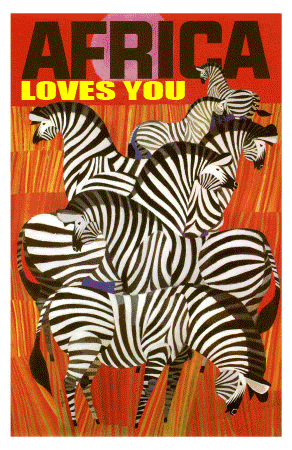Carling is a dreadfully bad lager beer served in second-rate pubs and rock nightclubs all over England. It has an unpleasant, chemical taste, made with cheap ingredients in as cheap a manner as possible, and sold at a premium.
And yet a lot of people drink Carling. Whatmore, for a lot of people Carling (and similar overpriced "brand" lager) is the only beer they have ever drunk. What always makes me scratch my head, though, is that these are
the same people who claim to not really like beer. Now, if I honestly don't like something, and yet would want to learn to like it, I would
absolutely not start with what the real fans think is disgusting! I don't much like coffee, never have, but if I'm forced to drink it I obviously try a cup of freshly made cappuccino over some old perculator gunk (just like the experts claim I should) - and yet most coffee drinkers start from the bad end and work themselves up to the cappuccino.
It's an eternal mystery of human pyschology that I think can't adequately be explained away by marketing and gullible consumers, nor by price. The most plausible theory I've heard involves the fact that the drinkers think they're making a compromise. If I don't like beer, they argue, the people who like beer must be wrong; therefore if I pick the stuff they hate, it must be the closest to non-beer - and thus acceptable. It's wrong, of course, but not the most stupid conclusion to make.
And so there grows up an industry of deliberately non-good-beer-like beer, your Budweisers and Heinekens and Carlings. And of course, there's plenty of music that somehow tries to emulate it.

One of my favourite Swedish language music bloggers at the moment is Inanna, who writes the uncomfortably personal and insightful
You Care Because I Do. In a
retrospective review of M.I.A's "Galang", she notes that music magazines when picking their "best of the year" lists will fall for what she calls "consensus pop", music that appeals both to the indie faction and the hip-hop faction as they vie for power in the magazine newsroom. Her examples are stuff like Gnarls Barkley, NERD, latter-day Outkast, The Avalanches or Hot Chip, and of course M.I.A herself. And yet this sort of middle-ground music is often just not very good - at least when compared to the stuff either faction would
actually have liked to put in there.
I think this is certainly a kind of Carling music. The people involved think they're compromising, yet what they end up with is just mostly bad. And, just like Carling drinkers, it's so surprisingly predictable what a person who doesn't really like hip-hop (or whatever) will listen to in a given genre. I had dinner with an record collecting friend in the summer and I could almost have used my Derren Brown-like telepathic powers beforehand to deduce what kind of hip-hop he likes, which came up in our conversation: Dead Prez. The Roots. "Dirty detroit stuff" like Immortal Technique. Him and seemingly literally
every other Swede.
Dude is only 21. It's not an age thing. But he's got his musical background in indie, and so he listens for stuff that's present in indie, "live-sounding" breakbeats, "grit" (whatever that is), political sensitivity. And he believes that the hip-hop as present in the working class he doesn't trust is its literal opposite, thus making this particular universally-selected subset of groups acceptable. In short, he's a musical Carling drinker.
I think this would kinda be my answer to
Sasha Frere Jones, too. I realise the guy has a background in funk and thus likes hip-hop insofar as it sounds like funk, what he sees ahistorically as "blues-based swing". And then he notices that hip-hop has shot off in this entirely other direction, sounding swish and effervescent and harmonically complex, and he
doesn't like it at all. A smart listener, at this point, would go down the cappuccino route: pick the most extreme music of the new generation, the stuff that the young kids make and like, perhaps even the stuff with the most extreme qualities
other than what you previously liked. Try to force yourself to listen to it and like it, and notice the sheer quick-moving dynamism of a style hurtling off in a totally unexpected direction.
Instead what we get is Carling music. SFJ somewhat pathetically champions dull boom-bapper Freddie Gibbs, who is totally a cop-out to the "blues-based swing" and steadfastly sitting in that old Tupac-shaped hole and not moving anywhere. It's not counter-edgy or a compromise, it's
just bad.
Perhaps if you don't like beer, dude, you should stick to alcopops.
 [Blog post illustration from Dancing Cheetah about Gazelle's track "Chic Afrique"]
[Blog post illustration from Dancing Cheetah about Gazelle's track "Chic Afrique"] [Soundcloud artwork for Max Le Daron's Rave Mundial vol. 1 mixtape]
[Soundcloud artwork for Max Le Daron's Rave Mundial vol. 1 mixtape]











































